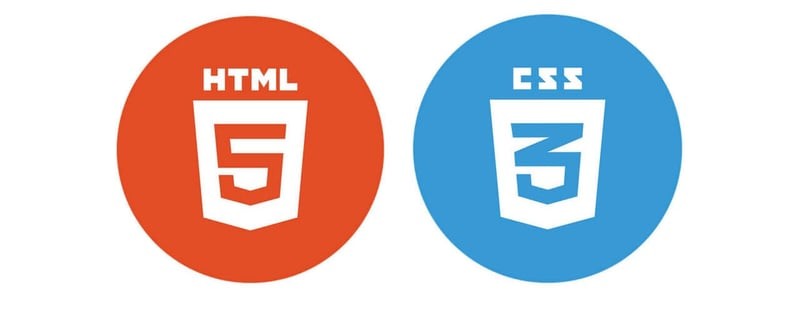Becoming a self-taught programmer is achievable with dedication and the right resources, and CONDUCT.EDU.VN offers guidance to navigate this journey. This comprehensive guide provides actionable strategies, emphasizes skill development, and helps you build a compelling portfolio, setting you up for success in the tech industry. Explore various learning paths and self-study methods.
1. Skills vs. Experience: Building a Skill-Centric Profile
The common saying “experience is the best teacher” holds weight, but what if you lack formal work experience? The key is to shift the focus towards your skills. No one can hand you experience, but you can actively cultivate skills through consistent effort. The more code you write, the more skilled you become.
Tailor your professional profile to highlight your abilities rather than dwelling on a perceived lack of experience. This involves:
- Skill-Centric Resume: Structure your resume to prominently feature your technical skills.
- Skill-Focused Website: Create a personal website showcasing your capabilities through projects and demonstrations.
- Skill-Expanding Projects: Choose projects that allow you to broaden your skill set and explore new technologies.
Many newcomers start with React, a popular and in-demand library. However, limiting yourself solely to React can be a disadvantage. Consider exploring a wider range of technologies:
- jQuery: While older, jQuery remains widely used and teaches core JavaScript concepts like anonymous functions.
- JavaScript and TypeScript: Develop fluency in both, as they are often used interchangeably in professional settings.
- Other Frameworks: Experiment with Angular, Vue, or Svelte to gain a broader understanding of frontend development.
- Node.js: Understanding Node.js is crucial for JavaScript developers, as it expands capabilities beyond the browser.
It’s understandable to feel overwhelmed by the vast landscape of frontend development. The goal isn’t to become an expert in everything, but rather to confidently demonstrate a well-rounded skillset to potential employers. Highlighting your skills shows you are ready for a job.
The aim is to construct a compelling narrative of your abilities, even without a traditional job history. By showcasing a diverse skillset, you can compensate for the lack of formal experience and increase your chances of landing that first programming role.
2. Do Not Skimp On HTML/CSS: Mastering the Fundamentals
While modern code camps often emphasize JavaScript frameworks, a solid foundation in HTML and CSS is crucial. Don’t treat these languages as an afterthought. HTML and CSS are the building blocks of any web application.
Without strong HTML and CSS skills, you’ll struggle to create visually appealing and user-friendly interfaces. Employers expect frontend developers to be proficient in all aspects of HTML and CSS, including:
- Flexbox: Understanding Flexbox is essential for creating flexible and responsive layouts.
- Bootstrap: Familiarity with Bootstrap can accelerate development and ensure consistency in design.
- Responsive Design: Knowing how to build websites that adapt to different screen sizes is a must-have skill.
In the past, some of these responsibilities might have fallen under the domain of the design team. However, modern frontend developers are expected to be comfortable with all aspects of HTML/CSS. A strong foundation in these technologies will set you apart from developers who prioritize JavaScript frameworks alone.
3. Have a GitHub Presence: Documenting Your Code Journey
If you don’t already have a GitHub account, create one immediately. GitHub is an essential tool for showcasing your coding abilities and collaborating with other developers.
A GitHub account provides tangible evidence of your coding activity, especially when you lack formal work experience. Every time you complete a coding challenge or build a small web demo, create a new repository under your GitHub account and store your code there.
The code in these repositories may not be perfect, but it demonstrates your commitment to learning and building. It’s far better to have a public code presence, even with imperfect code, than to have no online portfolio at all.
GitHub also provides opportunities to learn and practice Git, a version control system that is a core skill for modern developers. Familiarity with Git commands is essential for collaborating effectively on software projects.
Here’s an example of how to use Git commands:
| Command | Description |
|---|---|
git init |
Initializes a new Git repository. |
git clone |
Creates a local copy of a remote repository. |
git add |
Stages changes for commit. |
git commit |
Records changes to the repository. |
git push |
Uploads local commits to a remote repository. |
git pull |
Downloads changes from a remote repository to the local repository. |
git branch |
Manages branches. |
git merge |
Integrates changes from one branch into another. |




4. Open an AWS Account: Deploying Your Applications
Take your development skills to the next level by opening an Amazon Web Services (AWS) account. AWS offers a range of cloud computing services that can help you deploy and host your applications.
Don’t worry about the cost. Opening an AWS account is free, and many services are free to use for the first year. Even after the first year, the costs are minimal unless you’re hosting high-traffic applications.
AWS Amplify simplifies the process of deploying web applications. You can connect a GitHub repository to Amplify and have your code published to the web in minutes. Amplify also provides free SSL certificates for your websites.
Using AWS allows you to become familiar with the cloud computing ecosystem, which is a valuable asset for potential employers. Even if the company you’re targeting doesn’t use AWS, demonstrating familiarity with cloud platforms can strengthen your resume.
While AWS is a vast platform, you don’t need to become an expert in everything. Focus on learning the basics and using AWS to deploy and host your projects. Other cloud-computing solutions offer similar capabilities, so choose the platform that best suits your needs.
5. Build Stuff: Showcasing Your Coding Prowess
With a GitHub account to store your code and an AWS account to deploy it, the next step is to build projects. This is where you can demonstrate your coding skills and showcase your abilities to potential employers.
Start with your personal portfolio site. Even if you don’t have a lot of content to display, a personal website is a crucial first step in establishing a public coding presence.
Pay attention to the design and functionality of your personal site. Focus on performance, accessibility, and user experience. Tools like Lighthouse can help you generate reports on these aspects of your site.
Building projects is not about proving that you’re the world’s greatest coder. It’s about demonstrating that you are, in fact, a coder who can build and deploy applications. You can build static sites, simple utilities, or applications that leverage public APIs. The specific projects you choose are less important than the act of building something and making it publicly available.
6. Use Everything You’re Building to Bolster Your Resume: Crafting a Compelling Narrative
Even if you haven’t held a formal programming job, you can leverage your personal projects and freelance work to strengthen your resume.
Instead of only listing your non-programming jobs, create a section on your resume that highlights your coding projects. For example:
EXPERIENCE:
- 2021-Present: Self-Employed @ My Awesome Digital Solutions, LLC
- Responsibilities:
- Developed a website for a local non-profit organization using React and Node.js.
- Created a mobile app for tracking fitness goals using React Native.
- Contributed to an open-source project focused on improving accessibility for web applications.
- Technologies Used: TypeScript, JavaScript, HTML/CSS, Bootstrap, jQuery, GitHub, AWS, REST, GraphQL, React, Redux, React Native.
- Responsibilities:
- 2021-Present: Waiter @ Joe’s Chicken Hut
It doesn’t matter if you weren’t paid a significant amount for these projects. The key is to highlight the skills you used and the results you achieved. Be prepared to discuss these projects in detail during interviews and provide links to your GitHub repositories or deployed applications.
By framing your experience in this way, you demonstrate your passion for coding and your ability to apply your skills to real-world problems.
7. Contribute To Open Source Projects: Learning from Production Code
Contributing to open source projects can be challenging, especially for newcomers. Many open-source projects are maintained by experienced developers who are deeply familiar with the codebase. However, even small contributions can be valuable learning experiences.
Diving into established open-source projects allows you to see what “production code” looks like before you’ve ever worked in an official programming role. Production code is often more complex and nuanced than the code you encounter in tutorials and learning resources.
By studying open-source code, you can learn about different coding styles, architectural patterns, and best practices. You can also gain experience working with large codebases and collaborating with other developers.
Even getting a single line of code approved and merged into an open-source project can be a significant accomplishment. It demonstrates your ability to work within a team, follow coding standards, and contribute to a larger project.
Contributing to open source also looks great on your resume. It shows that you’re not just learning to code in isolation, but that you’re also actively engaged in the broader development community.
8. Consider Code-Adjacent Roles: Getting Your Foot in the Door
If you’re struggling to land a programming role, consider applying for code-adjacent positions, such as QA, business analyst, data analyst, desktop support, or project manager. These roles can provide an opportunity to get your foot in the door at a company and demonstrate your coding skills.
Many companies are hesitant to hire junior developers from outside the company. Newbies can be a drain on resources and may introduce bugs into the codebase. However, companies are often more willing to hire someone who already works for them in another role, especially if that person has demonstrated coding skills.
If you’re working in a code-adjacent role, look for opportunities to automate tasks, improve processes, or contribute to small coding projects. Demonstrate your coding skills and your willingness to learn and grow.
Over time, you may be able to transition into a programming role within the company. This can be a more realistic path than trying to get hired directly into a programming role from outside the company.
9. Blog: Sharing Your Knowledge and Insights
Blogging can be a valuable tool for self-taught programmers. It allows you to expand your public presence, deepen your understanding of technical concepts, and connect with other developers.
The act of writing about technical topics forces you to think critically and articulate your understanding in a clear and concise manner. This can help you identify gaps in your knowledge and improve your overall comprehension.
The blogging community can also provide valuable feedback and insights. Readers may point out errors in your logic, suggest alternative approaches, or offer helpful tips and resources.
Don’t be afraid to blog about topics that you’re still learning. You can frame your blog posts as open questions or discussions, inviting readers to share their knowledge and experiences.
Blogging is a great way to demonstrate your passion for coding and your willingness to share your knowledge with others. It can also help you build a personal brand and attract the attention of potential employers.
10. Pitch Your Services: Creating Your Own Opportunities
Instead of only applying for advertised positions, consider pitching your services directly to potential clients or employers. This involves identifying a need or problem that you can solve with your coding skills and then proposing a solution.
For example, you might approach a small business owner who is struggling with manual processes and offer to build a tool that automates those processes. You could also contact a non-profit organization and offer to build a website or application that helps them achieve their mission.
Pitching your services allows you to create your own opportunities and avoid competing with a large pool of applicants. It also demonstrates your initiative, problem-solving skills, and ability to communicate the value of your coding skills.
Even if the initial pay is low, gaining experience and building a portfolio can lead to better opportunities in the future.
11. Don’t Give Up: Persistence and Perseverance
Finding your first programming gig can be challenging, especially when you’re self-taught. There will be setbacks, rejections, and moments of doubt. But it’s important to persevere and not give up on your dreams.
Keep working on your skills, your public presence, and your projects. Network with other developers, attend industry events, and continue to learn and grow.
The tech industry is constantly evolving, so it’s essential to stay up-to-date with the latest technologies and trends. Embrace lifelong learning and be willing to adapt to new challenges.
Remember that every successful programmer started somewhere. With persistence, determination, and a commitment to learning, you can achieve your goals and build a rewarding career in software development.
CONDUCT.EDU.VN is dedicated to providing resources and support to help you on your journey.
FAQ: Frequently Asked Questions About Becoming a Self-Taught Programmer
-
Is it possible to become a successful programmer without a formal degree?
Yes, it is absolutely possible. Many successful programmers are self-taught. Focus on building skills, creating a portfolio, and networking.
-
What are the most important skills for a self-taught programmer to learn?
HTML, CSS, JavaScript, a popular framework like React or Angular, Git, and cloud computing basics are essential. Strong problem-solving and communication skills are also crucial.
-
How can I build a portfolio without work experience?
Create personal projects, contribute to open source, build websites for friends or non-profits, and document your coding journey on GitHub.
-
What are the best resources for learning to code?
Online courses, tutorials, documentation, coding bootcamps, and interactive coding platforms are all valuable resources. CONDUCT.EDU.VN offers resources to help you find the best learning paths.
-
How important is networking for self-taught programmers?
Networking is crucial. Attend meetups, conferences, and online communities to connect with other developers, learn about job opportunities, and get advice.
-
How can I prepare for technical interviews?
Practice coding challenges, study data structures and algorithms, and be prepared to discuss your projects and technical skills in detail.
-
What should I include on my resume if I don’t have work experience?
Highlight your skills, personal projects, open-source contributions, and any code-adjacent experience you may have.
-
How can I stay motivated when learning to code on my own?
Set realistic goals, celebrate your progress, find a mentor or study group, and focus on projects that you are passionate about.
-
What are some common mistakes that self-taught programmers make?
Skipping the fundamentals, not building a portfolio, not networking, and giving up too easily are common mistakes.
-
How can CONDUCT.EDU.VN help me on my journey to becoming a self-taught programmer?
CONDUCT.EDU.VN provides guides, resources, and community support to help you navigate the challenges of becoming a self-taught programmer. We offer guidance on ethical coding practices and professional conduct in the tech industry. Contact us at 100 Ethics Plaza, Guideline City, CA 90210, United States. Whatsapp: +1 (707) 555-1234. Website: CONDUCT.EDU.VN
Navigating the world of coding can be challenging, but with the right guidance and resources, success is within reach. CONDUCT.EDU.VN is here to provide comprehensive support and insights into building a strong foundation for your career.
Are you ready to take the next step in your journey to becoming a self-taught programmer? Visit conduct.edu.vn today for more in-depth guides, resources, and tools to help you succeed. Let us help you turn your passion into a profession.
